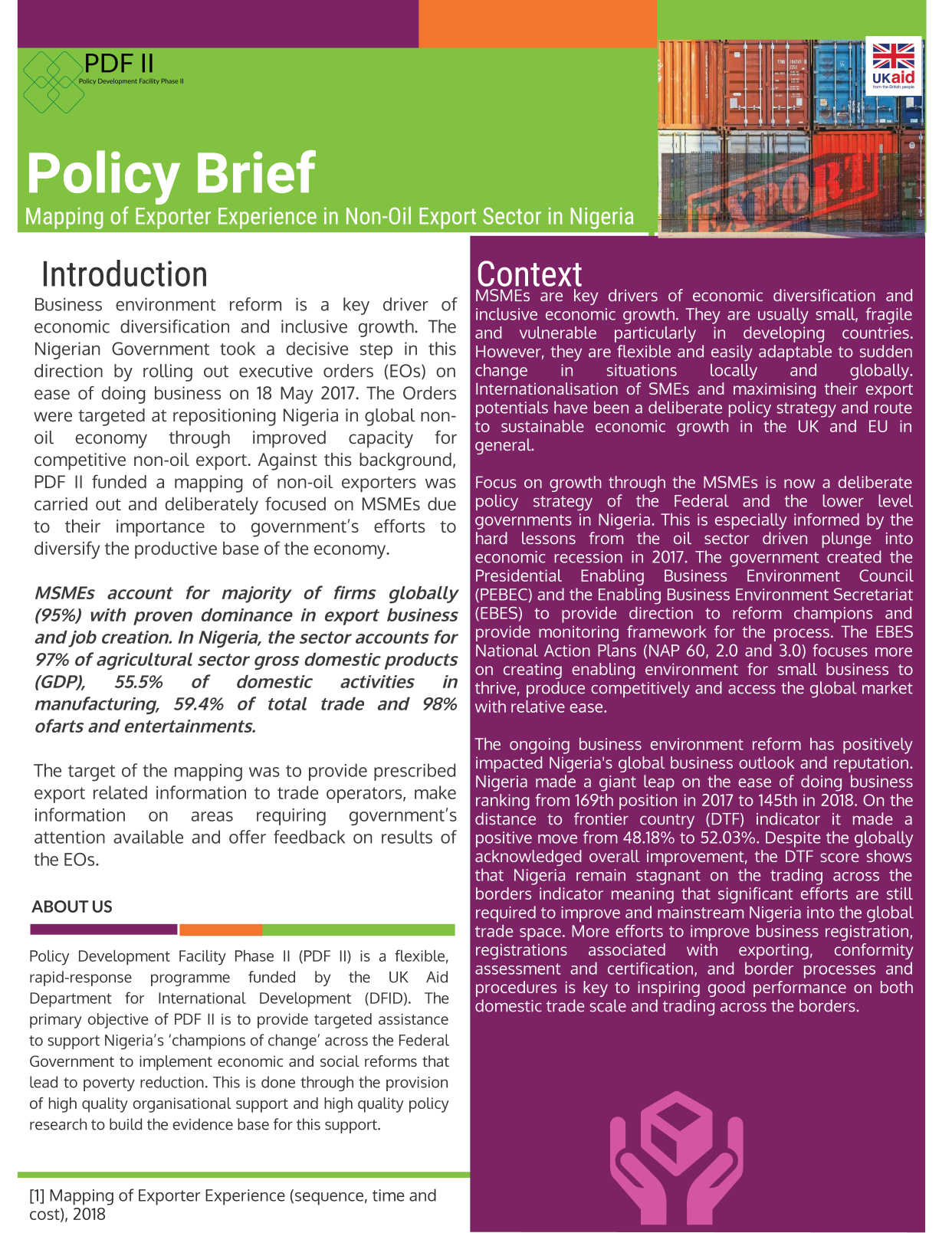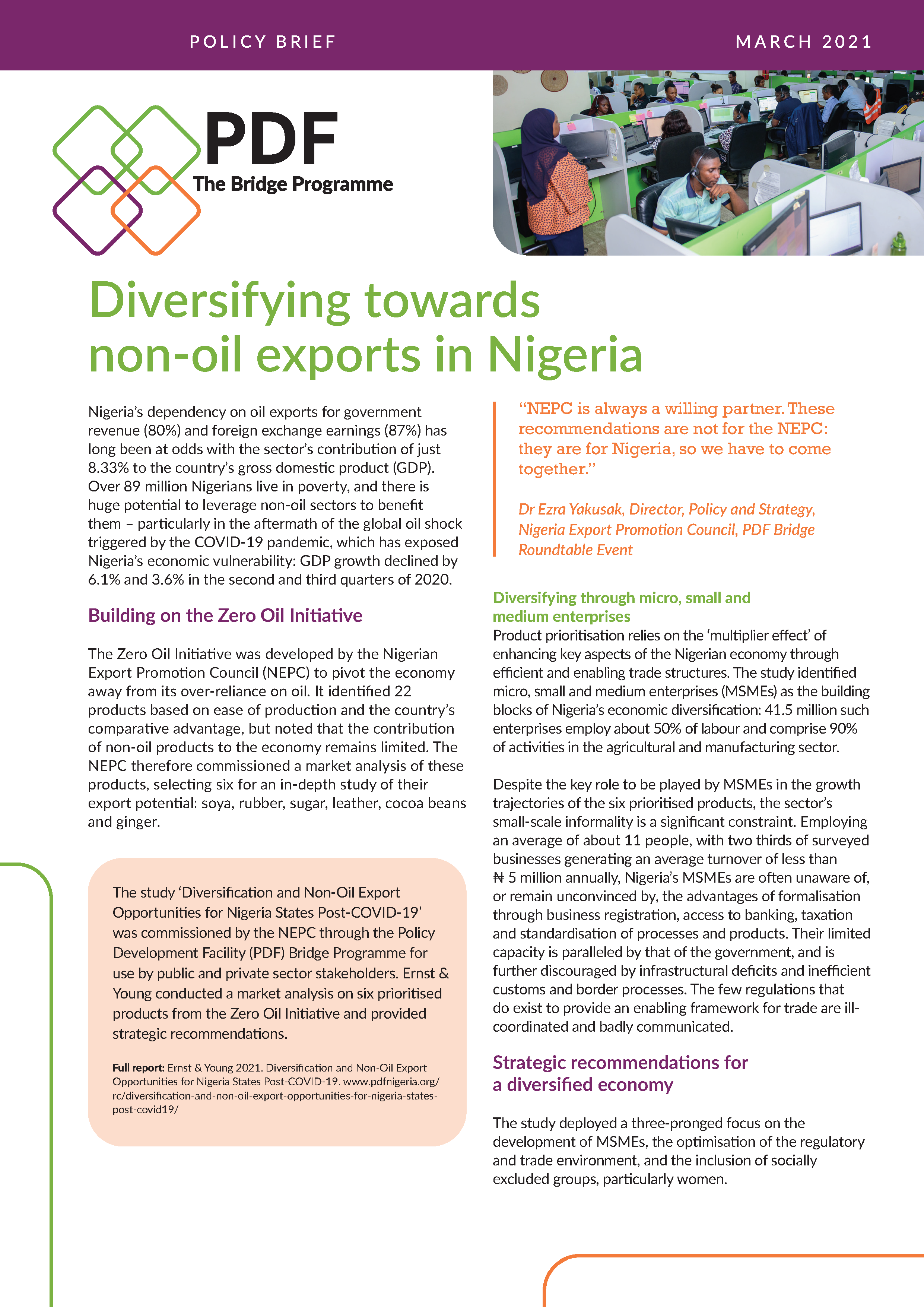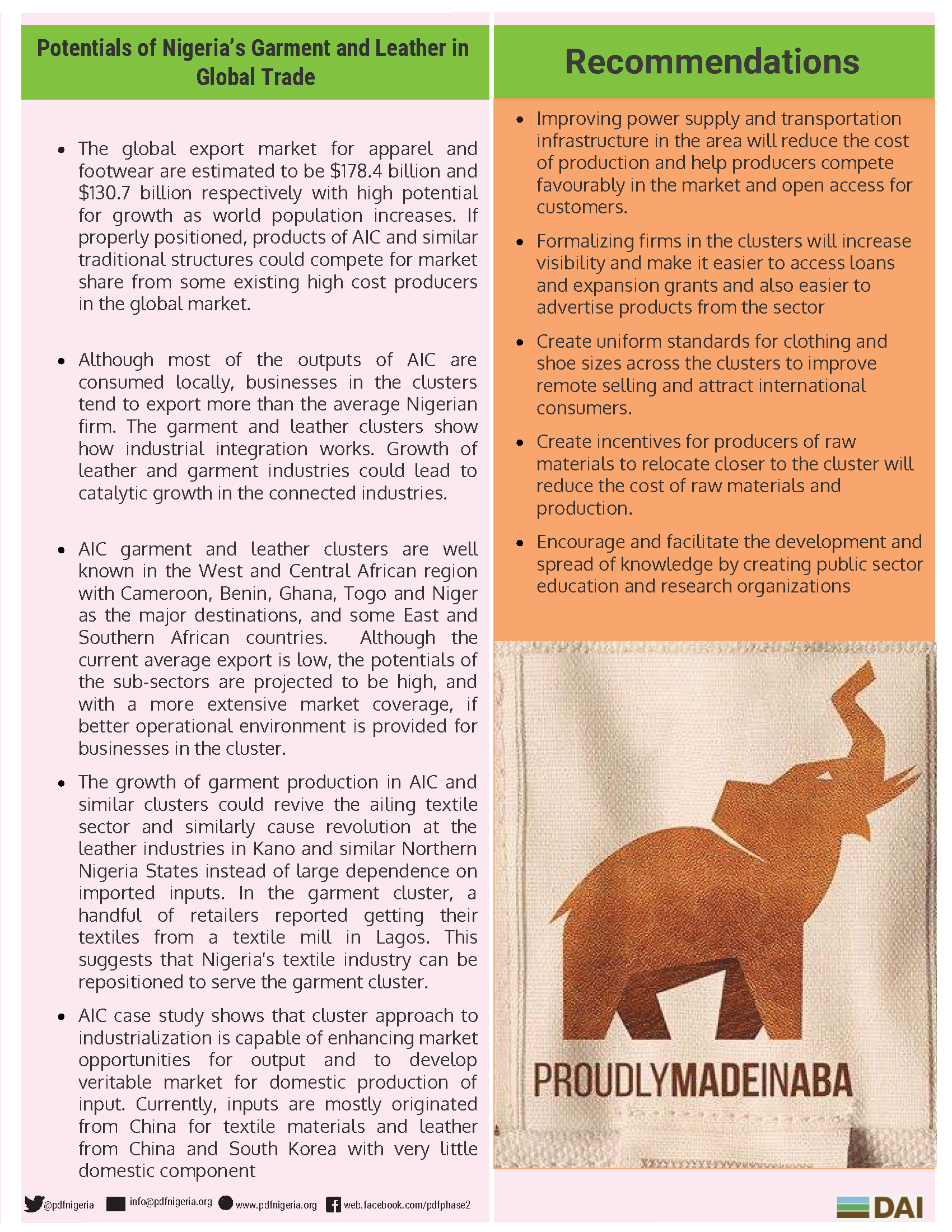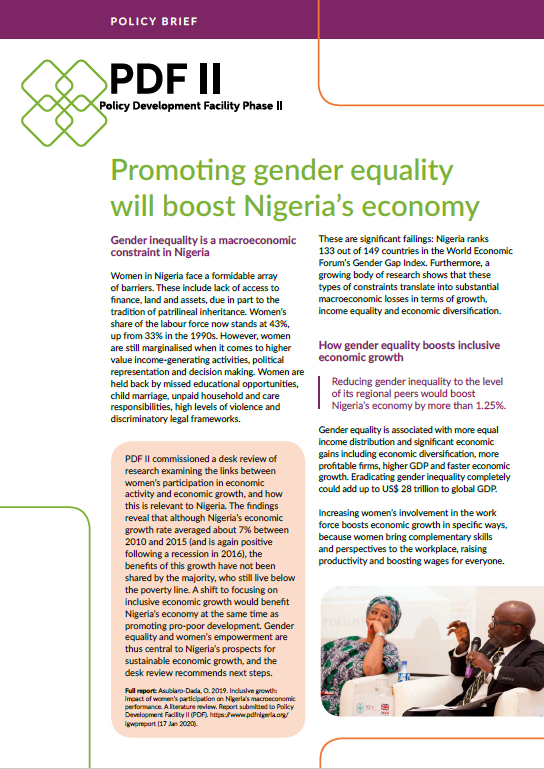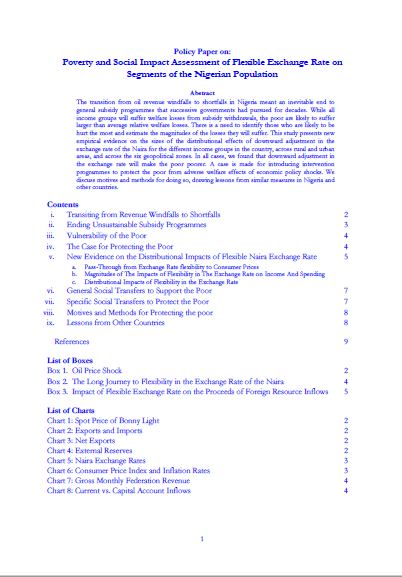Policy Brief: Mapping of Exporter Experience in Non-Oil Export Sector in Nigeria
Business environment reform is a key driver of economic diversification and inclusive growth. The Nigerian government took a decisive step in this direction by rolling out executive orders (EOs) on ease of doing business on 18 May 2017. The Orders were targeted at repositioning Nigeria in the global non-oil economy through the improved capacity for competitive non-oil export. Against this background, PDF II funded a mapping of non-oil exporters was carried out and deliberately focused on MSMEs due to their importance to the government’s efforts to diversify the productive base of the economy.

